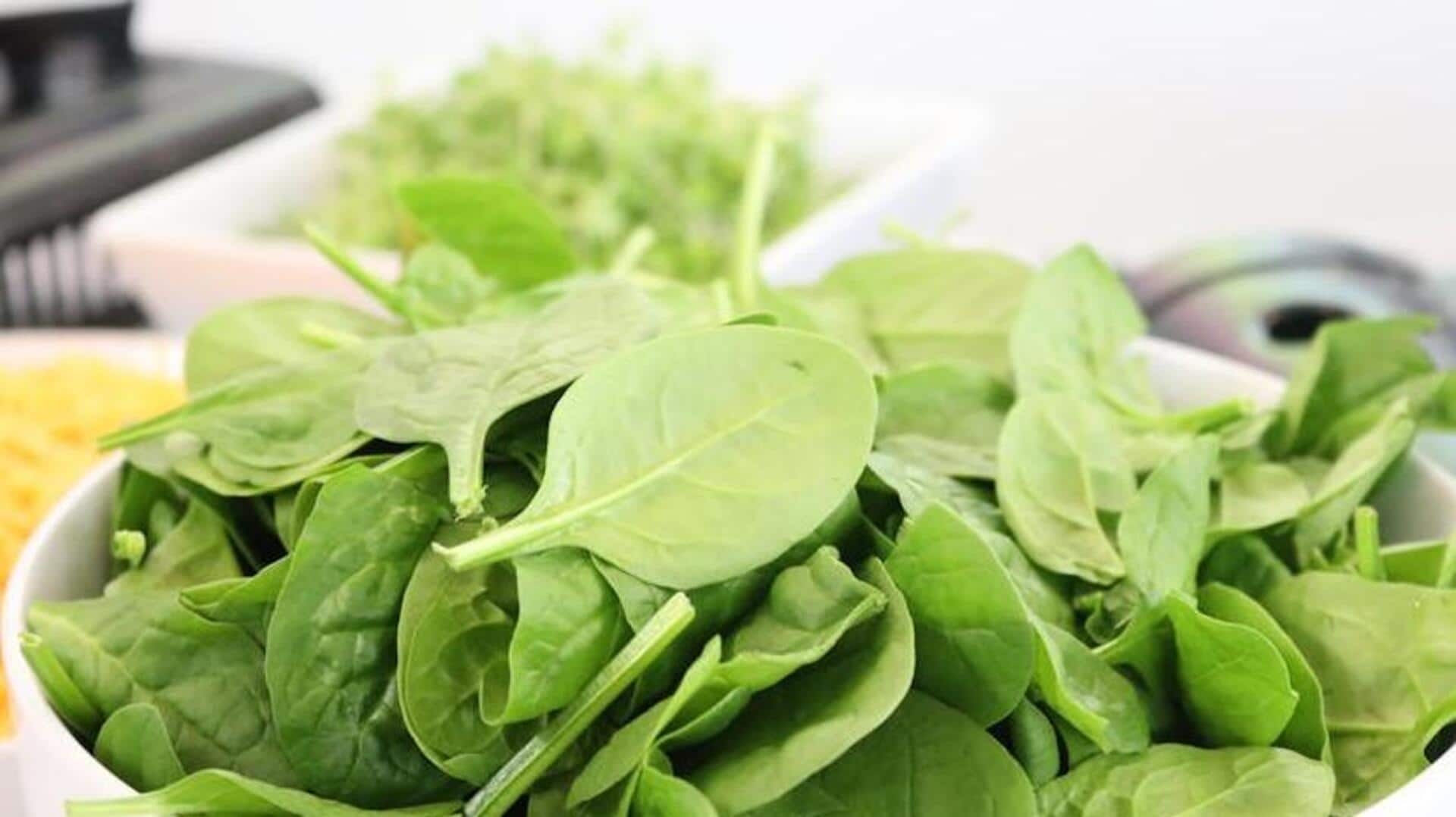
Top 5 vegetables for a healthier, more sustainable diet
What's the story
Adopting a vegetarian lifestyle can be both rewarding and challenging. It requires careful planning to ensure nutritional needs are met while maintaining sustainability.
Vegetables play a crucial role in this diet, providing essential nutrients and variety.
This article explores five vegetables that are not only nutritious but also support sustainable living practices.
These vegetables can be easily incorporated into daily meals, offering health benefits and contributing to an eco-friendly lifestyle.
Leafy green
Spinach: A nutrient powerhouse
Rich in iron, calcium, and vitamins A, C, and K, Spinach is another versatile food item that can be used in salads, smoothies, or cooked dishes.
Spinach grows quickly and eats less resource than other crops, making it an environmentally friendly choice.
Its high nutrient content supports bone health and boosts the immune system.
Root vegetable
Carrots: Crunchy source of beta-carotene
Everyone is aware of the fact that carrots are rich in beta-carotene, which converts into vitamin A in the body. The vitamin plays an important role in good vision and immune function.
Carrots thrive well in different climates with minimal water requirements.
They can be eaten raw as snacks or can be added to soups and stews.
Cruciferous veggie
Broccoli: Cruciferous health booster
Broccoli provides fiber, vitamins C and K, iron, potassium, and antioxidants that help reduce inflammation.
Being a member of the cruciferous family of vegetables, broccoli aids detoxification processes in the body.
It grows best in cooler temperatures with moderate water needs, making it perfect for sustainable farming practices.
Fruit vegetable
Tomatoes: Versatile vitamin C source
Tomatoes offer vitamin C and lycopene, a strong antioxidant associated with heart health benefits, and are low-calorie choices for dishes like sauces or salads due to their juicy texture when ripe enough.
They take up less land space than several other crops since they grow vertically on vines, instead of horizontally across fields, thereby saving precious agricultural resources over time, too.
Colorful veggie
Peppers: Colorful antioxidant providers
Peppers come loaded with antioxidants like vitamin C, as well as carotenoids like lutein and zeaxanthin, which help with eye health, among other things!
These colorful beauties thrive in hot weather, requiring nothing more than sunshine, water, and love from farmers who want them growing sustainably throughout the year without depleting natural resources unnecessarily.